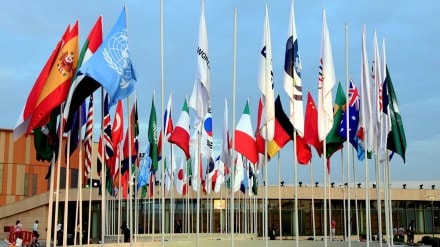As India gears up to host the G20 Summit on September 9th and 10th, senior European Union (EU) officials are shedding light on the ongoing negotiations for a joint statement by the sherpas of the member countries. The EU officials have expressed concerns about the challenging negotiations, with Russia and China refusing to accept certain language in the statement.
“We can’t say if a joint statement will be issued,” one senior EU official commented. Calling the ongoing negotiations “difficult,” the official said, “The text presented by the Indians is not sufficient for G7 and the EU. The difficulty arises from the fact that Russia and China have refused to revise certain languages. We expect the statement to reflect our position on Ukraine.”
China’s opposition to several Indian initiatives and the proposal to include “Vasudhaiva Kutumbakam” in the joint statement is well known. Asked about the Chinese position during the talks, the EU official described China as a “tough cookie,” and obtaining flexibility from them was a time-consuming process.
Ukraine remains a central concern in the discussions for the EU, G7, and Western members of the grouping. The EU officials stated that Ukraine would be on everyone’s minds during the summit and would be discussed with African partners. They expressed a wish that Ukrainian President Zelenskyy had attended the summit. India has invited eight countries to attend the summit’s proceedings but did not send an invite to Ukraine as it takes a neutral position on the ongoing conflict.
Asked about India’s role, as the host during the ongoing talks on the G20 Joint statement, an EU official says won’t judge, pointing out it is a nightmare to find a compromise. The official pointed out, “India is playing a role, they are trying their best,” recalling how skillful Indonesia was during its presidency of the grouping last year and “Indians we can see at the end of the process.”
For Brussels, expectations from the G20 joint statement include a reference to the UN Charter, a mention of Ukraine, and a focus on respecting territorial integrity. The EU officials emphasized the importance of states abstaining from attacking each other and placing this in a broader context.
When asked about Russia’s assertion that the G20 is primarily an economic grouping, the EU official argued that the organization had evolved into a more political forum. With leaders from around the world participating, the G20 has a geopolitical significance not found in other international organizations, officials pointed out.
Regarding Chinese President Xi Jinping’s absence from the summit, the EU official noted that he had been present at the previous year’s summit in Bali but refrained from commenting on China’s decision. Chinese President Xi is not attending the Delhi G20 summit, and in his place, Premier Li will be attending. No reason has been given by China as to why the President is skipping the Delhi summit, but the development comes amid India-China border tensions.
The EU officials highlighted their commitment to supporting the agenda of the global south and stressed that consensus-building would be a key focus of the summit. In addition to geopolitical concerns, the G20 summit hosted by India is expected to place significant emphasis on climate issues and the governance of artificial intelligence, showcasing the broad spectrum of topics on the summit’s agenda.
